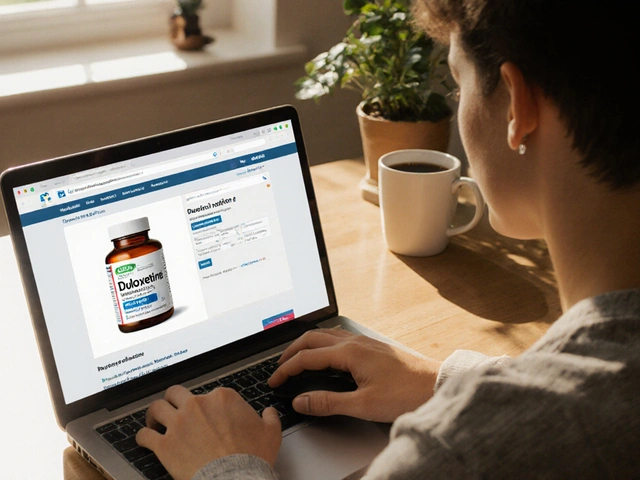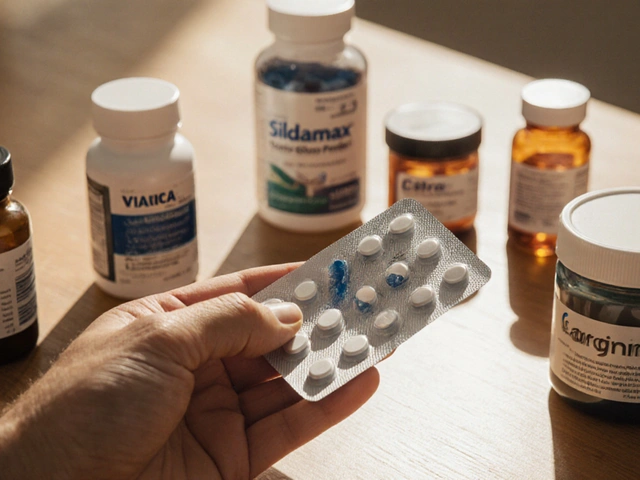Recall Status Checker
Check Your Device Recall Status
Enter your device information to see if it's affected by an active recall. This tool uses real FDA recall data to help you stay safe.
When you get an implant, a pacemaker, a hip replacement, or even a prescription drug, you’re not just getting a device or medicine-you’re getting a specific batch. That batch has a lot number, and if something goes wrong, that number could save your life. But most patients don’t know what it is, where to find it, or what to do if there’s a recall. This isn’t theoretical. In 2023, over 6,700 medical devices were recalled in the U.S. alone. Many of those recalls targeted specific lots-not entire product lines. If you don’t know your lot number, you might not get the warning in time.
What Is a Lot Number and Why Does It Matter?
A lot number is a unique code printed on the packaging, implant card, or device itself. It tells manufacturers exactly when and where your item was made. For example, a lot number like L20230105 might mean it was produced on January 5, 2023. That level of detail matters because recalls aren’t blanket alerts. If a batch of insulin pens has a faulty needle, only the lot made on that day needs to be pulled-not every insulin pen ever made. The U.S. Food and Drug Administration (FDA) requires lot tracking for high-risk devices: things like heart valves, pacemakers, spinal implants, and life-support equipment. The European Union has similar rules under its Medical Device Regulation (MDR), which took full effect in 2021. Without lot numbers, recalls would be chaotic. Imagine being told to replace your entire hip implant just because one factory made 50 defective ones. Lot tracking makes recalls precise, fast, and safe.Where to Find Your Lot Number
You won’t always find it on your body. You need to look at the paperwork. Here’s where to check:- Implant identification card: This is the most important document. It’s usually given to you before you leave the hospital. It lists the device name, model, serial number, and lot number. Keep it with your passport or driver’s license.
- Surgical report: Your surgeon’s office should have a copy of your procedure note. It includes the lot number used during your surgery. Call them and ask for a copy.
- Device packaging or manual: If you still have the box or instructions, the lot number is often printed on the label.
- Electronic health record (EHR): Since 2023, major hospital systems like Epic and Cerner are required to store device lot numbers in patient portals. Log in to your provider’s online portal and look under “Procedures” or “Implants.”
What to Do When a Recall Happens
Recalls are classified into three levels by the FDA:- Class I: Highest risk. Could cause serious injury or death. (About 12% of all recalls.)
- Class II: May cause temporary or reversible harm.
- Class III: Unlikely to cause harm.
How to Stay Ahead of Recalls
You don’t need to check every day. But you need a system:- Build your medical file: Keep a folder (physical or digital) with your implant card, surgical report, device manual, and any follow-up notes. Label it clearly: “Implants & Lot Numbers.”
- Register your device: Many manufacturers offer free registration. It’s quick. Just visit their website and enter your lot number. You’ll get direct alerts.
- Check quarterly: Every three months, spend 10 minutes visiting the FDA’s recall page. Search for your device name. If you’re unsure, call your doctor’s office-they have access to your records.
- Use your EHR portal: If your hospital uses Epic, Cerner, or another modern system, your lot number should already be there. Bookmark the page and check it regularly.
What If You Can’t Find Your Lot Number?
If you lost your card and your doctor’s office doesn’t have records, here’s what to do:- Call the manufacturer’s patient support line. Have your surgery date and device type ready.
- Ask your surgeon’s office to pull your operative report. They’re legally required to keep it for at least 10 years.
- If you had the procedure at a hospital, request your medical records under HIPAA. There’s usually a small fee, but it’s worth it.
The Future: Faster, Smarter, Safer
The system is improving. In January 2024, the FDA launched a pilot program where you can text your lot number to 311-FDA and get an instant recall status. By 2026, AI systems will automatically cross-check your EHR data with recall databases and flag at-risk patients with 95% accuracy. That means you might get a notification before you even know there’s a problem. Some companies like Medtronic and Johnson & Johnson are testing blockchain systems that let you verify your device’s history through a mobile app. These tools will eventually make recalls invisible to patients-because the system handles it for you. But until then, the responsibility is on you. You’re the only one who can link your body to your lot number. No one else has that information.What Patients Are Saying
On Reddit’s r/medicaldevices, users share stories that highlight both the risks and the power of being informed. One user, OrthoPatient87, waited three weeks to confirm their Zimmer Biomet hip implant was recalled-only because they didn’t have their lot number handy. Another patient, in a 2023 ASHP case study, got a recall alert within 24 hours because their clinic scanned the vaccine lot number into their EHR at the time of administration. The difference? Documentation.Bottom Line: Do This Today
You don’t need to be a medical expert. You just need to act:- Find your implant card or surgical report.
- Write down or photograph your lot number.
- Save it in your phone and a cloud folder.
- Register your device with the manufacturer.
- Sign up for FDA email alerts at fda.gov/medwatch.
- Check the FDA recall page once every three months.
What should I do if I think my medical device has been recalled?
First, don’t panic. Stop using the device only if instructed by your doctor or the FDA. Check your lot number against the FDA’s Medical Device Recalls database. If your lot is affected, contact your healthcare provider immediately. They’ll tell you whether you need to replace the device, get monitored, or take no action. Never ignore a recall-even if you feel fine. Some issues only show up over time.
Do all medical devices have lot numbers?
No. Only high-risk devices regulated by the FDA require lot tracking. This includes implanted devices like pacemakers, heart valves, spinal hardware, and certain insulin pumps. Most over-the-counter medications, bandages, and non-implanted equipment don’t have lot numbers. But if you had surgery or received a prescription drug that’s part of the Drug Supply Chain Security Act (DSCSA), your lot number is tracked.
Can I rely on my doctor to notify me about a recall?
Not always. Many doctors’ offices don’t have systems to track every patient’s lot number. Even when they do, patient records can become outdated if you move or change providers. The FDA found that 57% of negative recall reviews cited manufacturers’ inability to reach patients directly. You’re your own best advocate. Don’t wait for a call-check for yourself.
What if my lot number isn’t listed in the recall notice?
If your lot number doesn’t match the ones listed, you’re likely not affected. But double-check the device name and manufacturer. Sometimes recalls are listed under different names. If you’re unsure, call the manufacturer’s patient support line. They can verify your device’s status using your lot number. Never assume you’re safe just because you don’t see your number-confirm it directly.
Is it safe to keep using my device if there’s a recall but my lot isn’t affected?
Yes. If your lot number is not part of the recall, your device is considered safe to use. The recall only applies to specific batches with known issues. Continuing to use your device is not dangerous in this case. But keep monitoring for future recalls. Lot numbers change with every production batch, so your next device might be affected. Stay registered and keep checking.
How often should I check for recalls?
Check the FDA’s recall database every three months. That’s enough to catch most issues without overwhelming you. If you’ve signed up for FDA email alerts, you’ll get notifications automatically. But don’t rely on email alone-some patients miss them. A quarterly manual check ensures you’re covered. If you’ve had a new implant or device, check immediately after surgery.
Can I get my lot number from my insurance company?
No. Insurance companies don’t track medical device lot numbers. Their records show billing codes, procedure dates, and provider names-but not the specific batch of your implant. Only the hospital, surgeon’s office, manufacturer, or FDA have that data. Don’t waste time calling your insurer. Go straight to your medical records or the FDA’s website.
What if I don’t want to share my lot number with the manufacturer?
You’re not required to register your device or share your lot number. The FDA respects patient privacy and allows you to opt out. But doing so means you won’t get direct alerts from the manufacturer. You’ll still get public recall notices through the FDA, but you’ll need to check them yourself. If you’re concerned about privacy, write down your lot number and keep it in a locked file. You don’t need to give it to anyone unless you choose to.






Write a comment
Your email address will be restricted to us